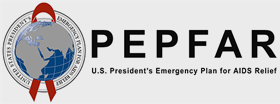MTaPS’ work followed core tenets that have contributed to a solid start for an AMR strategy in Kenya:
Building on existing structures
Throughout, we have focused on strengthening existing core governance structures in all three key areas—multisectoral coordination, AMS, and IPC—rather than setting up parallel structures and activities, which would have led to inefficiencies.
Sensitization and advocacy
MTaPS has participated in key events at the national and county levels. We supported the Kenya MOH in its first commemoration of the World Patient Safety Day in September 2019 through three events in Nairobi, Nyeri, and Kisumu counties. The program also participated in the World Antibiotic Awareness Week campaign in November 2019, creating awareness about these critical issues for the general public to build holistic awareness on AMR.
Consultative and inclusive interventions
MTaPS extended its activities across many groups that have a stake in containing AMR. We collaborated with health leaders and reached out to professional associations, donors, implementing partners, training institutions, students, and communities to establish a broad base of support and consensus.
Continuous quality improvement
Our approach has emphasized building knowledge and skills through mentoring, supportive supervision, and monitoring, including opportunities for review and feedback.
Government ownership and empowerment
Ensuring country ownership is critical to sustainability. We dedicated significant time to trainings of trainers; identifying national, county, and facility champions for our interventions; and continuous professional development.
With this base of work to strengthen each foundational component needed to contain AMR, Kenya is well positioned to expand these activities nationwide. MTaPS will continue to support pilot counties and will document and share approaches, best practices, and lessons learned with national and county MOH departments and stakeholders. We continue to utilize the “Tao of Leadership” principle in all of our work: giving people the tools and inspiring them take control of their own progress.



